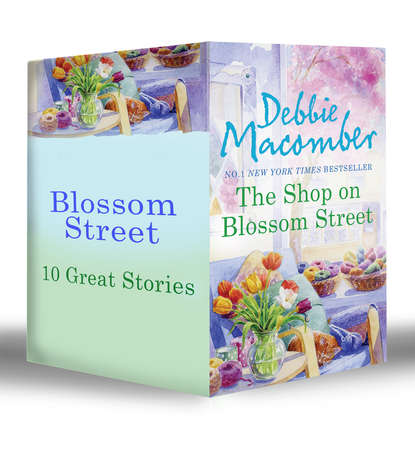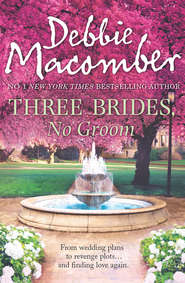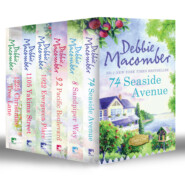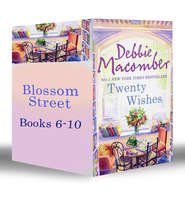По всем вопросам обращайтесь на: info@litportal.ru
(©) 2003-2025.
✖
Blossom Street
Автор
Год написания книги
2019
Настройки чтения
Размер шрифта
Высота строк
Поля
“Yes, hi,” Carol said, sounding as unsettled as I felt.
Alix continued to glare at Jacqueline but the older woman did a masterful job of ignoring her. I should have known something like this would happen, but felt powerless to stop it. Alix and Jacqueline were about as different as any two women could be.
“My name is Carol Girard and my husband and I are hoping for a child. I’m currently undergoing fertility treatments. I’m having an IVF attempt in July. The reason I’m in this class is that I want to knit a blanket for my yet-to-be-conceived baby.”
I could see from Alix’s face that she didn’t understand the term.
“IVF refers to in vitro fertilization,” Carol explained.
“I read a wonderful article about that in a recent issue of Newsweek magazine,” Jacqueline said. “It’s amazing what doctors can do these days.”
“Yes, there are quite a few miracle drugs available now, but thus far Doug and I haven’t received our miracle.”
The look of longing on Carol’s face was so intense, I yearned to put my hand on her shoulder.
“July is our last chance at the IVF process,” she added. Carol bit down on her lower lip and I wondered if she knew how much of her anxiety she revealed.
“What do they do to you with this in vitro stuff?” Alix asked, leaning forward. She seemed genuinely interested.
“It’s a rather long, drawn-out process,” Carol said. “I’m not sure you want me to take class time to go though it all.”
“Would you mind?” Alix asked, surprising me with her curiosity.
“By all means,” Jacqueline chimed in, but I doubted that her interest was as sincere as Alix’s seemed to be.
“Well,” Carol said, clasping her hands on the table, “it all starts with drugs.”
“Doesn’t everything?” Alix laughed at her own joke, but no one else joined in.
“I was on this drug that stimulates the ovaries to produce eggs, and once the eggs appeared, they had to be harvested.”
“Did it hurt?” Jacqueline asked.
“Only slightly, but all I had to do was think about a baby, and any discomfort was worth it. We both want to be parents so badly.”
That much was obvious, and from what I’d seen of Carol I was sure she’d be a wonderful mother.
“After the doctor collected Doug’s sperm, my eggs were inseminated to create a number of embryo cultures. These are then transferred to my uterus. We’ve had two attempts that didn’t succeed, and the insurance company will only pay for three and, well, it’s just very important that I get pregnant this time.”
“It seems to me you’re putting lots of stress on yourself,” Alix said in what I found to be an insightful comment.
“How nerve-racking for you both,” Jacqueline murmured.
“I feel so confident, though.” Carol positively beamed with it. “I’m not sure why, but for the first time in months I feel really good about all of this. We decided to wait after our last attempt. Mostly because Doug and I needed a while to deal with our disappointment over the second failure. I also felt it was necessary to prepare myself physically and mentally. But it’s going to work this time. I just know we’re going to have our baby.”
“I hope you do,” Alix said. “People who want children should have them.”
“There’s always adoption,” Jacqueline said. “Have you considered that?”
“We have,” Carol replied. “It’s a viable option, but we don’t want to try for adoption until we’ve done everything possible to have a biological child.”
“From what I understand, there’s quite a waiting period,” Jacqueline said and then seemed to regret speaking.
“Yes, I know … Doug and I have talked about that, too. We might have to look into an overseas adoption but we’ve read that those can be difficult. Anyway, these are all options we’re willing to consider if we can’t have our own child, but we’ll make those decisions when and if the time comes.”
I waited a moment and then gestured to Alix. “Tell us a little about yourself.”
Alix shrugged. “My name’s Alix Townsend and I work at the video store across the street.”
I hoped she wouldn’t mention working on the baby blanket to deduct hours from her court-ordered community service, but I couldn’t stop her if she did. Once Jacqueline heard that, I figured she’d probably walk right out of the class. Forgive me for being so mercenary, but Jacqueline would buy far more yarn than Alix ever could.
“I happen to like living in this neighborhood,” Alix said pointedly, “and I hope I can continue to live here once they’re through screwing up the street.” Her eyes narrowed as she stared across the table.
“Don’t look at me like that,” Jacqueline muttered. “I don’t have anything to do with it.”
“I thought,” I said, still standing, “that we could discuss the different weights and types of yarn for our first lesson.” I felt an urgent need to distract Alix, although I was a strong supporter of the Linus Project. “The pattern I’ve chosen is one of my favorites. What I like about this particular pattern is that it’s challenging enough to keep you interested, but not so difficult as to discourage you. It’s done in a four-ply worsted weight yarn and knits up fairly quickly.”
I had a large wicker basket filled with samples of several worsted weight yarns in a variety of colors. “I know it might sound rather self-serving, but I feel I should mention something here. Always buy high-quality yarn. When you’re investing your time and effort in a project, you defeat yourself before you even start if you use bargain-basement yarn.”
“I agree one-hundred percent,” Jacqueline said firmly. I’d known she wouldn’t have a problem with that.
“What if some people can’t afford the high-priced stuff?” Alix demanded.
“Well, yes, that could make things difficult.”
“You said anyone taking the class gets a twenty-percent discount on yarn. Are you sticking to that or have you changed your mind?”
“I’m sticking to it,” I assured her.
“Good, because I don’t have a lot of change jingling around in the bottom of my purse.” She reached for a pretty pink-and-white blend of wool and acrylic. “This costs how much?”
“Five dollars a skein.”
“For each one?” A horrified look came over her.
I nodded.
“How many would I need if I knit the blanket using this?”
I glanced down at the pattern and then calculated the yardage of the worsted against the total amount of yarn required for the project. I grabbed my calculator. “It looks like five should do nicely. If you only use four you can return the fifth one to me for a full refund.”
Alix stood and reached into her pocket and dragged out a crumpled five-dollar bill. “I can only buy one this week, but I should be able to pick up the second one next week, if that’s all right.”
“It’s important to get the same dye lot for each project, so I’ll put aside what you need and you can pay me as you go.”
Alix looked pleased. “That works for me. I suppose the lady married to that fancy architect can buy all the yarn in your shop.”
“My name is Jacqueline and I’d prefer that you use it.”











